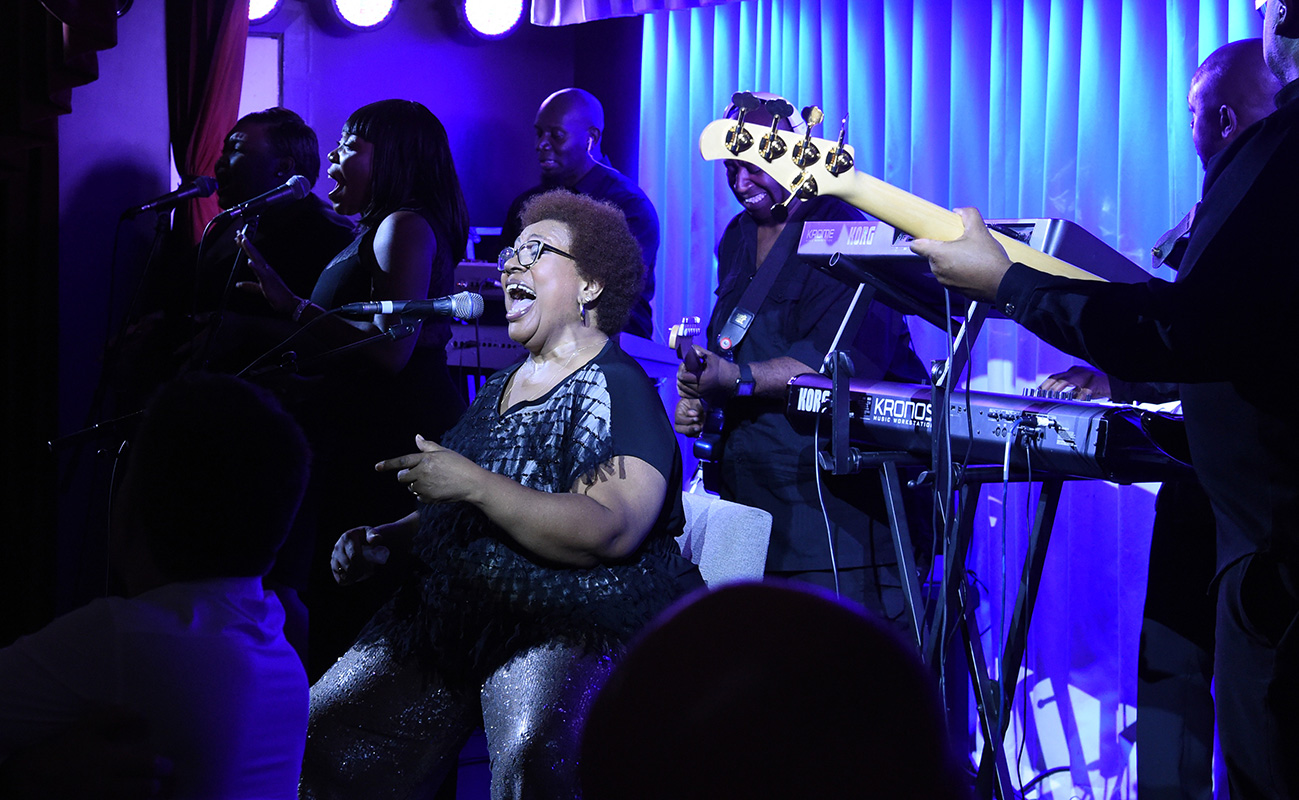This website uses cookies so that we can provide you with the best user experience possible. Cookie information is stored in your browser and performs functions such as recognising you when you return to our website and helping our team to understand which sections of the website you find most interesting and useful.
Singer Jocelyn Brown on how we can invest in Britain’s music scene
By Michelle Johnson | 29 June 2018 | Culture
As the ‘Somebody Else’s Guy’ hitmaker prepares for her 4 July performance, she tells Tempus why London is food for her soul

From backing singer to soulful stage star, Jocelyn Brown has enjoyed a varied career since she first made her debut in 1973. And although the club hit 'Somebody Else's Guy' has been her only no.1 to date, she has worked with some of the biggest names in RnB, disco and even house music as her inimitable voice and love of performance inspired her on and off the stage.
Now set to host a night of RnB with her house band at Mayfair restaurant Quaglino's on 4 July, Brown – who was raised in North Carolina but settled in London with her family in 1990 – says the evening is a tribute to her British fans, She told Tempus: "More than anything else, I want my UK fans to know how grateful I am for their support over all these years. I hope to keep producing and giving them what they want."
Sitting down with us ahead of the show, Brown shared her thoughts on the city, Britain's Got Talent and how investors can breathe new life into the music industry…
You've been living in London since 1990, what do you love about the city?
You know, if I can be very honest, I'm not an outgoing person when I'm off stage. We might walk along the river, or go along the South Bank on the weekends, but London is a metropolitan place where everyone from every country is here ready for adventure. I did explore during my first 10 years, but now I love the solitude and nature I have near my home. London is great for that – everyone can find what they're looking for. If you want trouble, you can find trouble. But if you want a luxurious, leafy place where you can chill out and live your life, you can find that too. This city is really a world where you can find what you appreciate.
You're performing at Quaglino's on 4 July. What should fans expect?
Well, even though we're going to put on a low-key show, it'll still be world class thanks to my fantastic house band. I love music and performing. It's a healer – performing touches people and touches me. The more I do, the more ground I find to cover. Nothing makes me happier. I'm trying to establish a situation where my Aunt Barbara [Roy, singer] and I can perform together, and I'm also working with my peers to find time for us to all get on stage together. The conversations we've been having have been fabulous, so I really hope that comes together soon. I'm going to keep moving as long as God allows me to do so! >>

Your background in the industry is so extensive. What have been some of your career highlights?>
You know, it was never my personal desire to work in so many genres. It's been a wonderful experience, I've worked with some wonderful DJs and producers. But in my heart, I'm an RnB girl – I want to the band to slow down and make me feel it. The biggest moment in my career was getting a no.1 'Somebody Else's Guy'. That song is very personal to me, I had some very bad hiccoughs in life to inspire that song – my sister and I went through a long fight, and we only reconciled these last 10 years.
How has the industry changed during your career?
I must say, I don't mean any disrespect to anyone, but shows like Britain's Got Talent suck. It has nothing to offer the artist, unless they do what they think they should do. It actually takes away the courage to grow as a performer. I understand that the industry is a multimedia creature now, and there's merit in getting out there and getting seen, but you need to make a situation where you can be working and creating. Britain's Got Talent doesn't tell me anything that I didn't already know was there. We need to invest correctly in new artists.
How can investors and producers nurture new talent?
First of all, if you want to invest in an artist you have to find out what they can really do. They might have many facets of what they can do, or not have tried something that's perfect for them. You have to give artists a challenge – what else have they got? If you support them enough you'll inspire them, and then you can challenge them. There's one more major thing. Don't invest in an artist unless you respect them. You must respect the artist. Be willing to be a teacher, instead of being controlling.







